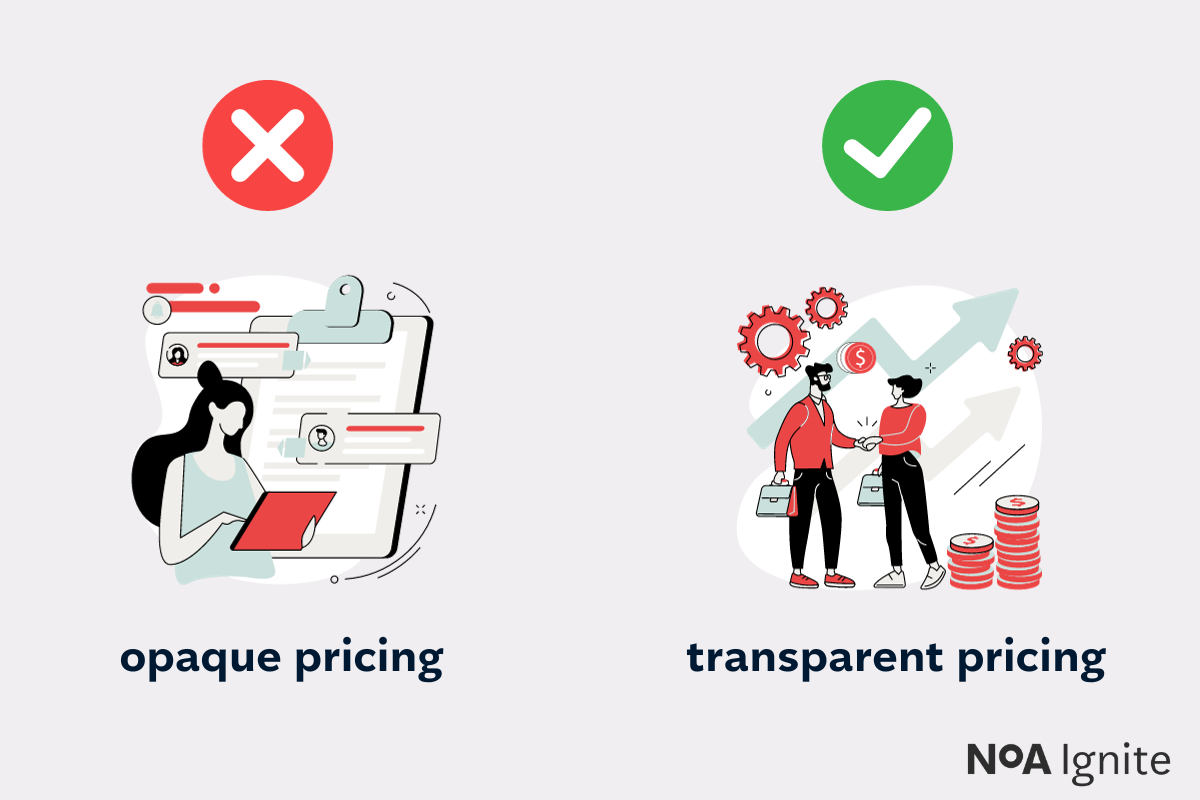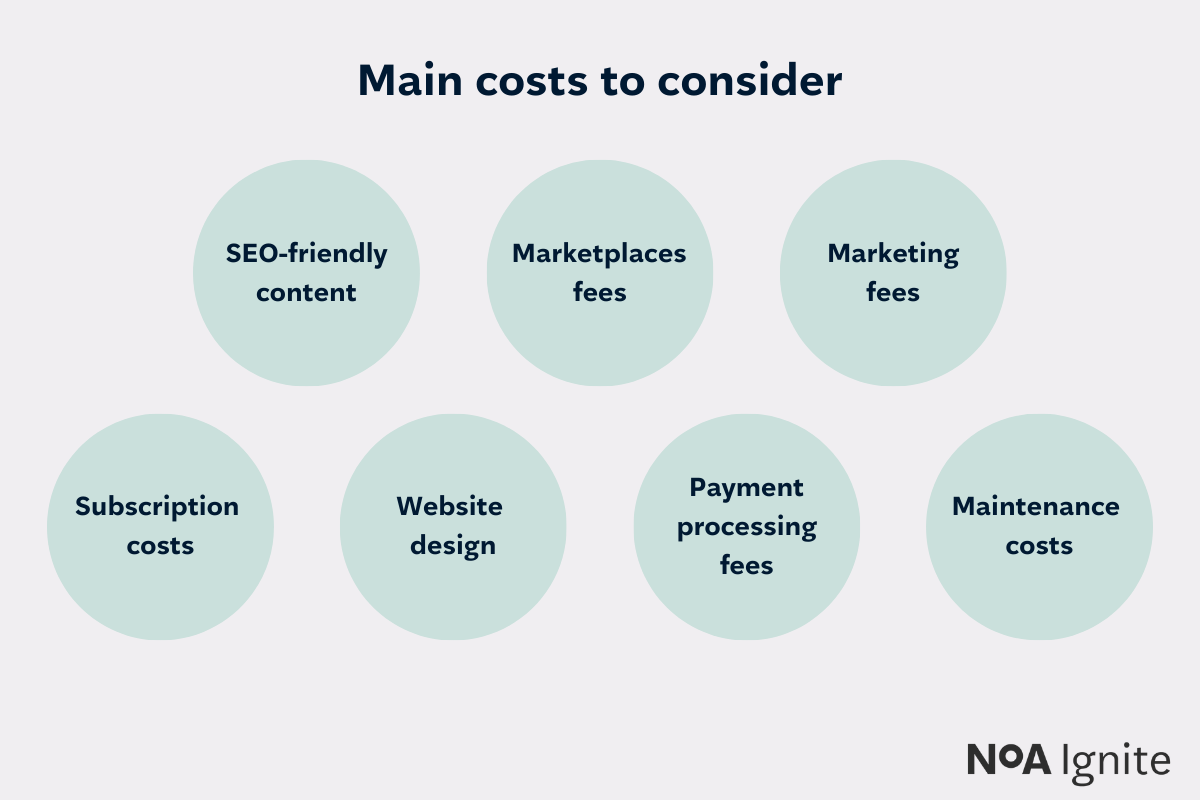The challenges of selling services online via e-commerce
October 11, 2023 / 4 min read

Selling services via e-commerce is a growing trend, but how to do it right? In this article, we address a series of questions that our experts have been asked while discussing the sale of services as products through e-commerce platforms.
Should I be showing my fees?
One of the primary challenges service providers face is being transparent about their pricing. Many hesitate to openly share their service fees, fearing it might expose them to unfair competitors who may engage in price dumping practices. However, transparency can be a powerful tool. While not all services can be priced or estimated upfront, if you want to sell your services as products, you should create offerings that include prices. Consider whether your service can be sold in sets of hours or have a clearly defined beginning and ending, allowing for pre-estimation. It becomes even easier if at least a portion of your services can be prepared upfront and tailored to each customer's needs.
Take us as an example. At NoA Ignite, we think customer-first. If there is anything we can simplify for the client, we absolutely will. This was the idea behind our consultation service website that provides expert advice on a pay-per-hour basis. Why should anyone be subject to spending time talking to our sales reps if we could simply provide clear and upfront pricing information about our consultants' fees? This not only simplifies the decision-making process for customers but also builds trust and credibility. It eliminates the need for lengthy negotiations and allows customers to assess the value of the service upfront.
More examples? Pay-per-hour services can be found across many industries, such as education (private tutoring, exam preparation), IT (web development, tech advisory), legal (dispute resolution), and medicine (therapy sessions). Pre-packaged services sold online via e-commerce platforms include online courses (anything from self-development through professional upskilling to language courses), photography shoots (weddings, business headshots), cleaning (houses, apartments, offices, furniture), interior design (bathroom design, full-apartment design), handiwork (installations, removals, furniture assembly) and many more.
How would I make myself stand out?
Another common challenge is defining a clear Unique Selling Proposition (USP). Your USP distinguishes you from competitors and helps potential customers understand why they should choose your services. To address this challenge, it's essential to convey what makes your services unique and why customers should prefer you over others in your industry. How can you do this effectively?
Start by conducting market research. Find your niche, build customer personas, and thoroughly research your competitors, including non-direct competitors who may offer alternative solutions to your prospective client's pain points. Open communication, direct messaging, and understanding your target audience are key to defining and effectively communicating your USP.
How do I choose the right technology?
Selecting the right technology to support your online service sales can be daunting, especially given that technology underpins many other business decisions and development strategies. How can you ensure that technology works for you rather than against you?
The choice of technology often depends on various factors, including your growth expectations and the nature of your services. Content Management Systems (CMS) play a crucial role in establishing your online presence. For smaller businesses or those just starting out, platforms like WordPress can be cost-effective and user-friendly. However, if you anticipate rapid growth and the need to integrate with external platforms, a more flexible solution like a headless CMS, such as Contentful, might be a better fit. When you're ready to start accepting payments for your services directly through your website or via a service marketplace, you'll need to add an e-commerce layer that caters to your specific business model.
Remember: every business is different, no matter how much a cliché it sounds. Better be safe than sorry, so if you are struggling to make this crucial decision, ask an expert.
Am I compliant?
Legal considerations are often underestimated by service providers entering the online space. Ensuring your website and services fully comply with data protection laws (such as DPA or GDPR) and consumer protection regulations is vital. Investing in well-drafted terms and conditions, privacy policies, and legal advice can save you from potential legal issues and protect your business's reputation.
What costs should I consider?
Understanding the costs involved in selling services online is crucial to make sure venturing into e-commerce is not going to be just an experiment for your business but an actual source of profit.
The initial investment will be the one in content. You will need clear, attractive and SEO-friendly descriptions of your offering, paired with adequate and professional photography (or/and video, if applicable to your business model and industry).
When using online marketplaces, there may be fees, such as commissions, for each service sold through the platform. Additionally, there could be joining fees, subscription costs and marketing fees, depending on the platform you choose.
If you decide to sell services directly through your website, payment processing fees, as well as website design and maintenance costs, are factors to consider. It's essential to have a clear understanding of the cost structure and plan your budget accordingly.
Summary
In conclusion, selling services online offers tremendous opportunities for businesses to expand their reach and connect with a broader customer base. However, it comes with its share of challenges. By addressing issues like pricing transparency, defining your USP, choosing the right technology, ensuring legal compliance, and understanding the costs involved, you can navigate these challenges successfully. Openness, clear communication, and a customer-centric approach are key to thriving in the digital marketplace.
At Noa Ignite, we're here to assist you in making informed decisions and overcoming the challenges of selling services online. Feel free to reach out to us for personalized guidance and support on your journey to online service sales success.
Author

Małgorzata Radkiewicz
e-Commerce Strategist
Małgorzata’s 15 years of experience have seen her delivering effective solutions to ecommerce brands of all shapes and sizes across the EU and UK. Małgorzata is experienced in brand positioning, traffic and ecommerce sales analytics and leading ecommerce teams and projects for B2B and D2C businesses.
Related articles
![A well-crafted prompt doesn’t just work once. It works across teams, channels, and campaigns. It can be tweaked for new use cases and refined based on what performs best.]()
June 27, 2025 / 4 min read
Prompts are marketing assets: how to reuse, and scale them
Prompts aren’t throwaway lines. They’re repeatable, scalable assets that can streamline your marketing your team’s output. Learn how to build a prompt library that delivers.
![Woman using a wheelchair in the office settings]()
June 17, 2025 / 5 min read
What is accessibility and why it matters?
Accessibility ensures everyone — including those with disabilities or limitations — can read, navigate, and engage with your content equally.





